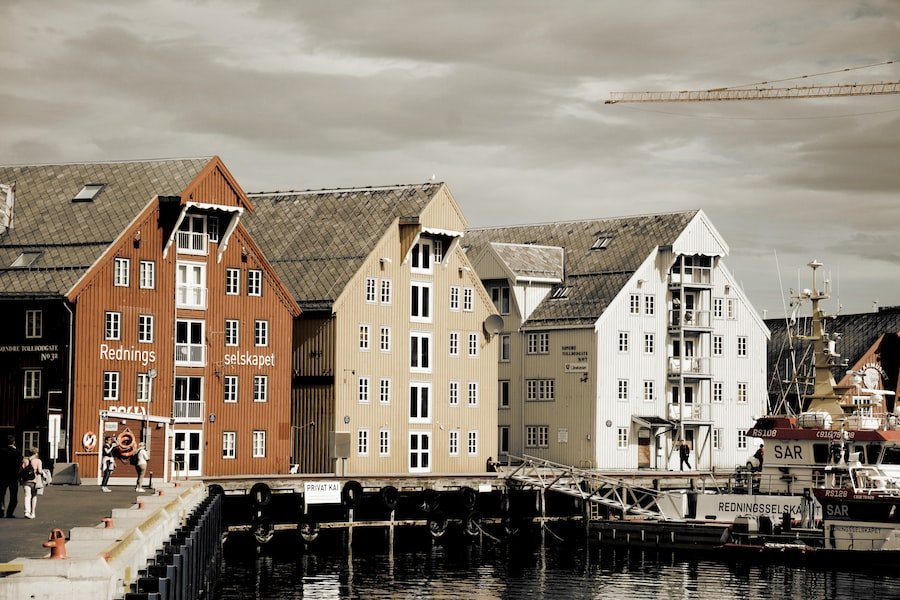

Norwegian Words for Political and Social Discussions
Understanding Norwegian political vocabulary is crucial for anyone interested in the politics and social issues of Norway. As a country known for its progressive policies and commitment to social justice, Norway has a unique political landscape that requires a deep understanding of its language and terminology. This article aims to provide a comprehensive guide to Norwegian political vocabulary, covering everything from social justice conversations to political parties and ideologies, human rights and equality, environmental issues and sustainability, and immigration and diversity. By delving into these topics, readers will gain a deeper understanding of the Norwegian political system and the language used in political discourse.
Table of Contents
ToggleKey Takeaways
- Norwegian political vocabulary can be complex and nuanced, but understanding it is crucial for engaging in social justice conversations.
- Key Norwegian words for social justice conversations include likestilling (equality), mangfold (diversity), and rettferdighet (justice).
- Norwegian political terminology includes storting (parliament), regjering (government), and statsminister (prime minister).
- Language plays a significant role in Norwegian politics, with certain words and phrases carrying specific connotations and political affiliations.
- Common Norwegian words for political parties and ideologies include Arbeiderpartiet (Labour Party), Høyre (Conservative Party), and Sosialistisk Venstreparti (Socialist Left Party).
- Norwegian words for human rights and equality include menneskerettigheter (human rights) and likeverd (equal worth).
- Translating Norwegian social and political terminology can be challenging, as certain words may not have direct equivalents in other languages.
- Norwegian words for environmental issues and sustainability include miljøvern (environmental protection) and bærekraftig (sustainable).
- Norwegian words have played a significant role in social movements, with terms like kvinnekamp (women’s struggle) and homofili (homosexuality) shaping public discourse.
- Norwegian words for discussing immigration and diversity include innvandring (immigration), integrering (integration), and flerkultur (multiculturalism).
Understanding Norwegian Political Vocabulary
To understand Norwegian political vocabulary, it is important to have a basic understanding of the Norwegian political system. Norway is a constitutional monarchy with a parliamentary system of government. The King or Queen is the head of state, but their role is largely ceremonial. The executive power lies with the government, which is headed by the Prime Minister. The Parliament, known as the Storting, is the legislative body responsible for making laws and overseeing the government.
In Norway, there are three levels of government: national, regional, and local. At the national level, the Storting is responsible for making decisions on national issues such as foreign policy, defense, and taxation. At the regional level, there are 11 counties that have their own elected councils responsible for regional planning and development. At the local level, there are over 400 municipalities that have their own elected councils responsible for local issues such as education, healthcare, and transportation.
Key Norwegian Words for Social Justice Conversations
Social justice is an important concept in Norway, where there is a strong emphasis on equality and welfare. Social justice refers to the fair distribution of resources and opportunities in society, with a focus on addressing inequalities and promoting equal rights for all individuals. In Norway, social justice is achieved through a combination of progressive policies such as universal healthcare, free education, and a strong social safety net.
To engage in conversations about social justice in Norway, it is important to be familiar with key Norwegian words related to this topic. Some important words to know include:
– Sosial rettferdighet (social justice)
– Likhet (equality)
– Velferd (welfare)
– Inkludering (inclusion)
– Diskriminering (discrimination)
– Likestilling (gender equality)
– Rettigheter (rights)
– Solidaritet (solidarity)
Norwegian Political Terminology Explained
Understanding political terminology is essential for following political discourse in Norway. Here are some common political terms and their explanations:
– Politikk (politics): The activities, actions, and policies used to gain and hold power in a government or to influence the government.
– Parti (party): A group of people who share similar political beliefs and work together to achieve common goals.
– Ideologi (ideology): A set of beliefs or ideas that guide an individual or group’s political actions and policies.
– Venstre (left): Refers to political parties and ideologies that advocate for social equality, progressive policies, and government intervention in the economy.
– Høyre (right): Refers to political parties and ideologies that advocate for individual freedom, limited government intervention, and free-market capitalism.
– Sentrum (center): Refers to political parties and ideologies that take a moderate stance, seeking a balance between left-wing and right-wing policies.
– Statsminister (Prime Minister): The head of government in Norway, responsible for leading the executive branch and implementing policies.
– Stortinget (Parliament): The legislative body in Norway, responsible for making laws and overseeing the government.
The Role of Language in Norwegian Politics
Language plays a crucial role in political communication in Norway. The choice of words and phrases can shape public opinion, influence policy decisions, and mobilize support for political causes. Politicians and activists often use language strategically to convey their messages and rally support.
One example of the importance of language in Norwegian politics is the use of the term “velferdssamfunn” (welfare society). This term is often used to describe Norway’s commitment to social welfare and equality. By framing the concept of welfare as a fundamental aspect of Norwegian society, politicians and activists can garner support for policies that promote social justice and equality.
Another example is the use of the term “innvandring” (immigration). This term has been a topic of heated debate in Norwegian politics, with different political parties and ideologies taking different stances on the issue. The choice of words used to discuss immigration can shape public opinion and influence policy decisions, highlighting the importance of language in political discourse.
Common Norwegian Words for Political Parties and Ideologies

Norway has a multi-party system, with several political parties representing a range of ideologies. Here are some of the major political parties in Norway and their corresponding ideologies:
– Arbeiderpartiet (Labour Party): A center-left party that advocates for social democracy, workers’ rights, and a strong welfare state.
– Høyre (Conservative Party): A center-right party that advocates for free-market capitalism, limited government intervention, and individual freedom.
– Fremskrittspartiet (Progress Party): A right-wing populist party that advocates for limited immigration, lower taxes, and reduced government spending.
– Sosialistisk Venstreparti (Socialist Left Party): A left-wing party that advocates for socialism, environmental sustainability, and social justice.
– Venstre (Liberal Party): A centrist party that advocates for individual freedom, social liberalism, and environmental sustainability.
– Kristelig Folkeparti (Christian Democratic Party): A center-right party that advocates for Christian values, social conservatism, and a strong welfare state.
Norwegian Words for Human Rights and Equality
Norway is known for its commitment to human rights and equality. Here are some important Norwegian words related to these topics:
– Menneskerettigheter (human rights)
– Likestilling (gender equality)
– Diskriminering (discrimination)
– Minoriteter (minorities)
– LHBTQ+ rettigheter (LGBTQ+ rights)
– Rettferdighet (justice)
– Ytringsfrihet (freedom of speech)
– Religionsfrihet (freedom of religion)
Translating Norwegian Social and Political Terminology
Translating Norwegian political terminology can be challenging, as certain words and phrases may not have direct equivalents in other languages. Here are some tips for translating Norwegian political terminology:
– Understand the context: When translating political terminology, it is important to understand the context in which the term is used. This will help ensure an accurate translation.
– Use a bilingual dictionary: Bilingual dictionaries can be a helpful resource when translating political terminology. Look for dictionaries that specialize in political and social sciences.
– Consult experts: If you are unsure about the translation of a specific term, it can be helpful to consult experts or native speakers who are familiar with the language and politics of Norway.
Norwegian Words for Environmental Issues and Sustainability
Norway is known for its commitment to environmental issues and sustainability. Here are some important Norwegian words related to these topics:
– Miljøvern (environmental protection)
– Bærekraftig utvikling (sustainable development)
– Klimaendringer (climate change)
– Fornybar energi (renewable energy)
– Naturvern (nature conservation)
– Avfallshåndtering (waste management)
– Grønn økonomi (green economy)
– Klimapolitikk (climate policy)
The Significance of Norwegian Words in Social Movements
Language plays a crucial role in social movements, shaping the narratives and mobilizing support for various causes. In Norway, language has been used effectively in social movements to advocate for social justice, environmental sustainability, and human rights.
One example is the use of the term “klimastreik” (climate strike) by the youth-led movement Fridays for Future. By framing their protests as strikes, the movement draws attention to the urgency of addressing climate change and calls for immediate action from political leaders.
Another example is the use of the term “likestilling” (gender equality) by feminist movements in Norway. By using this term, activists highlight the need for equal rights and opportunities for all genders, challenging societal norms and advocating for policy changes.
Norwegian Words for Discussing Immigration and Diversity
Immigration and diversity are important topics in Norwegian politics. Here are some important Norwegian words related to these topics:
– Innvandring (immigration)
– Integrering (integration)
– Asylsøker (asylum seeker)
– Flyktning (refugee)
– Kulturdiversitet (cultural diversity)
– Mangfold (diversity)
– Assimilering (assimilation)
– Utlendingspolitikk (immigration policy)
Understanding Norwegian political vocabulary is essential for anyone interested in the politics and social issues of Norway. By familiarizing oneself with key Norwegian words related to social justice conversations, political terminology, human rights and equality, environmental issues and sustainability, immigration and diversity, readers can gain a deeper understanding of the Norwegian political system and engage in meaningful discussions about these topics. It is important to continue learning about Norwegian language and politics to fully grasp the nuances of the country’s political landscape.
If you want to learn Norwegian, you can register for classes here. We look forward to hearing from you and helping you become fluent in Norwegian.





